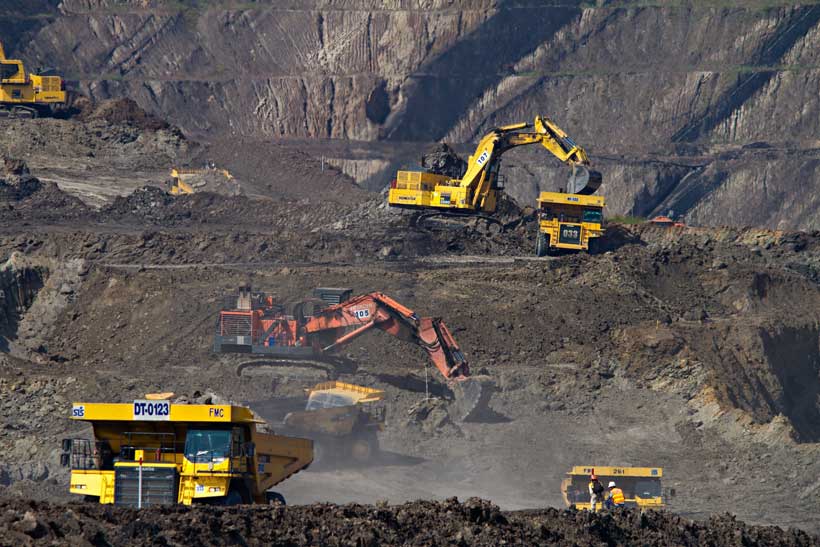While Brussels’ corridors of power buzz with talk of critical raw materials, our discussions remain fixated on geopolitics and extraction. These aren’t just any minerals – they’re the essential ingredients for everything from wind turbines to electric cars, the very backbone of the green transition. The European Union’s dependency on foreign suppliers has transformed raw materials into a pressing political issue, particularly as global demand for these materials is projected to quadruple, as countries pursue their climate commitments. But in our rush to secure new supply chains, we’re overlooking a powerful solution right under our noses: recycling.
The stakes could not be higher. The EU is nearly entirely dependent on foreign suppliers for 14 out of 27 critical raw materials, and over 90% dependent for an additional three. China’s dominance extends beyond extraction to processing capabilities — they control approximately 60% of global lithium refining despite mining only 9% of the world’s supply. These aren’t just statistics; they represent a fundamental vulnerability in Europe’s industrial strategy.
The recently published Critical Raw Materials Act attempts to address these dependencies by establishing ambitious benchmarks, including limiting dependency on any single country to 65% of annual consumption and achieving 25% of domestic needs through recycling by 2030. Yet whilst manufacturing operations receive generous incentives and political support, our recycling industry remains woefully under supported. The regulatory framework treats these valuable materials as waste, creating unnecessary barriers for companies trying to establish robust recycling operations.
The potential of the recycling sector remains largely untapped. While Europe hosts several innovative recycling companies with cutting-edge technologies, most remain small players in a market that could be significantly larger. Current regulations make it unnecessarily complex to trade recycled materials between EU member states, and investment in recycling infrastructure lags far behind other sectors of the green economy.
What’s needed now is a comprehensive approach that gives recycling the attention and support it deserves.
First, we need to fast-track recycling infrastructure investments through dedicated funding mechanisms and streamlined permitting processes. The timeline for developing new recycling operations is significantly shorter than for new mining projects, offering a faster route to reducing our dependencies.
Second, as endorsed by Commission President von der Leyen, we must establish a true single market for secondary materials. This requires reviewing waste classifications under current legislation and developing harmonised definitions for secondary materials. Market-based instruments, such as targeted tax incentives, are essential to stimulate investment in recycling technologies.
Third, we need to build strategic international partnerships to create cross-border recycling networks. This includes establishing specific trade frameworks for secondary materials that transcend traditional waste shipping regulations. The Global Gateway initiative could focus on building sustainable recycling partnerships worldwide, creating value in partner countries while securing sustainable material flows.
Fourth, we must make recycling of complex products easier. Clear product labelling and digital product passports could help enable material tracking and recovery. This needs to be supported by specific recycling targets for individual materials and comprehensive guidance on recycling technologies.
Finally, we need coherence between the Critical Raw Materials Act and other EU legislation, particularly regarding collection targets, eco-design requirements, and waste definitions. This harmonisation should promote absolute rather than relative progress towards resource consumption goals within planetary boundaries.
The EU can leverage its strengths — the single market, strong rule of law, high environmental standards, and advanced infrastructure — to create competitive advantages in sustainable material recovery. By promoting global environmental standards through market mechanisms while building domestic capacity, we can establish a resilient and sustainable supply chain that reduces dependencies while advancing our environmental objectives.
Critics might argue that recycling alone cannot meet our raw material needs. That’s correct — but that’s not the point. Every percentage point of materials we recycle is one less we need to import from potentially competing partners. Moreover, building a robust recycling industry would give Europe a competitive advantage in a world increasingly focused on sustainability.
The technology exists. European companies possess world-leading expertise in recycling complex materials. What’s missing are the market conditions and regulatory frameworks to make these operations economically viable at scale. By giving recycling the same attention and support we provide to mining and manufacturing operations in the name of “competitiveness”, we can build a more resilient and sustainable supply chain.
Europe’s industrial future depends on securing stable supplies of critical raw materials. The choice is not between mining and recycling; we need both. But while we’ve spent years focusing on securing new sources of raw materials, we neglected to build the regulatory and financial frameworks needed to create a thriving recycling industry. It’s time to correct this oversight. The technology is ready, the expertise is available, and the market is waiting. All we need now is the political will to make it happen.
